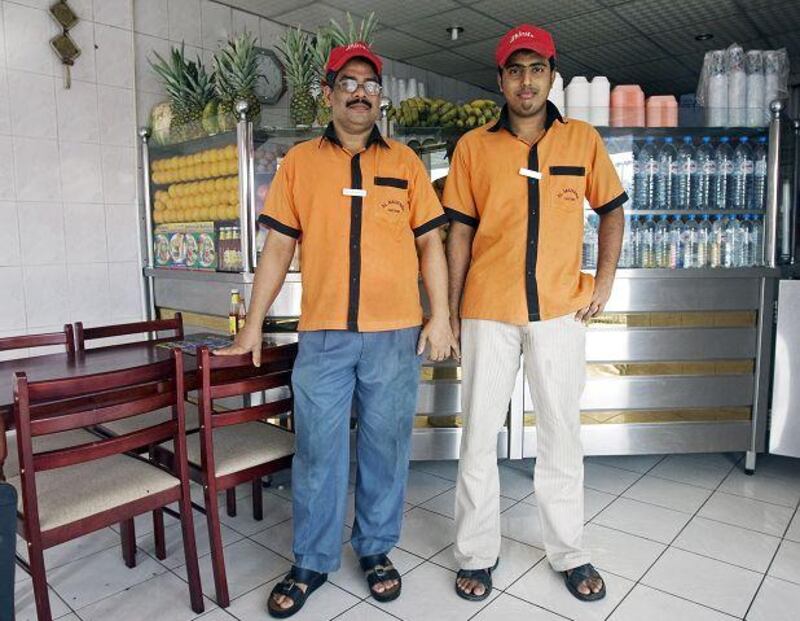SHARJAH // Cafes have been told to provide their staff with uniforms or risk fines of up to Dh10,000 (US$2,700). Cafe owners and staff said yesterday that the dress code was on a list of instructions that they had received from Sharjah Municipality this month.
"We were given 20 days to ensure that all our staff have uniforms," said Abbas Abdullah, a cafeteria owner in Al Gurg market. "The municipality warned us that after 20 days we would be fined if found without uniforms." The instructions come at a time of heightened concern about food safety, following a number of high-profile cases of suspected food poisoning. All staff working in the kitchen and serving areas must wear similar-coloured clothing and a cap. Owners were warned that failure to comply would attract fines between Dh5,000 and Dh10,000.
"If the inspectors catch any of us without uniform, spot fines would be given," said Mr Abdullah. Mr Abdullah, who has been running his cafe for more than five years, said the instructions had also detailed how facilities should be kept clean as well as how to secure cooking gas lines properly. Sharjah Municipality would not comment on what had led to the changes, nor elaborate on what they were.
But restaurant owners believed they were prompted by a desire to improve the image of cafes following recent deaths. A four-year-old girl, Marwa Faisal, died in Sharjah at the end of May, 55 minutes after she, her parents and her brother had been admitted to hospital with symptoms that included violent vomiting. The family had eaten food from a cafe the previous morning, before a home-cooked lunch and dinner.
"After the food poisoning case, inspections have been intensified and the municipality has been very strict," Mr Abdullah said. Salih Talasheeri, another cafe owner, said the inspections by Sharjah Municipality had hit a peak last month. "Inspectors visit almost all cafeterias twice a week and check if all regulations have been adhered," he said. The number of customers at the cafe he runs in the Rolla area had dropped in recent months.
"We see this as a good step, as the image of cafeterias will improve and we will have more customers." According to municipal records, there are 7,066 food-related establishments in Sharjah, with between 400 and 500 new businesses licensed every year. A large number are cafes, mostly run by Indian businessmen, which serve fast food such as burgers, fries, shawarma and sandwiches along with fresh juices and soft drinks.
Last month, The National reported that most of the restaurants monitored by Sharjah Municipality had failed basic food hygiene inspections on such grounds as out-of-date food and mouldy kitchens. Jassim Mohammed al Ali, head of the municipality's internal inspection department, said that over the past 12 months, inspectors had checked 1,588 restaurants and cafeterias, of which only 223 met the minimum requirements.
Of the remaining establishments, 891 were issued with warnings and 474 were closed until they could show improvements. Restaurants and grocery shops are also being checked to ensure food is being stored and prepared safely. In March, a popular Arabic restaurant was fined Dh100,000 and closed for a month after it was allegedly found selling some food past its sell-by date. Similar action has been taken against several groceries.
pmenon@thenational.ae ykakande@thenational.ae






